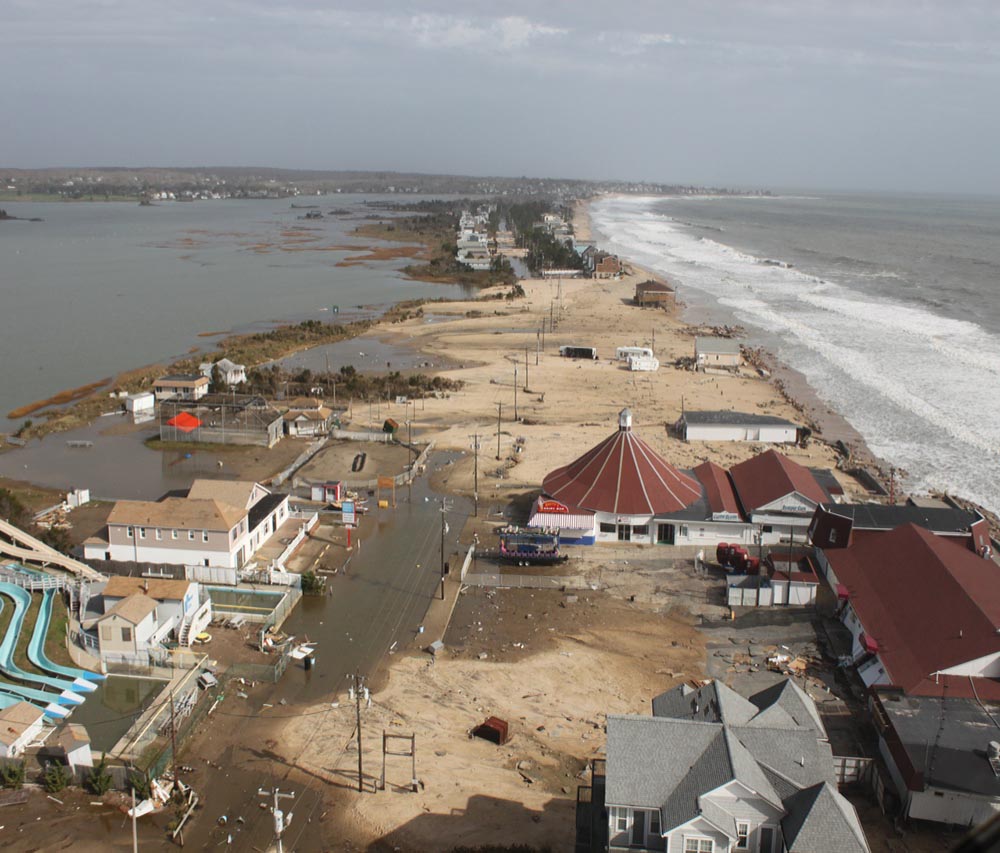
RI Coastal Resources Management Council
...to preserve, protect, develop, and restore coastal resources for all Rhode Islanders

...to preserve, protect, develop, and restore coastal resources for all Rhode Islanders
BOEM and Rhode Island Sign Agreement to Evaluate Sand Resources for Coastal Resilience and Restoration Planning
Contact: Marjorie Weisskohl 703-787-1304
July 18, 2014, NARRAGANSETT – As a part of President Obama’s continuing commitment to help coastal communities recover from Hurricane Sandy and promote resilient coastal systems, the Bureau of Ocean Energy Management (BOEM) and the State of Rhode Island signed a two-year cooperative agreement totaling $200,000 to evaluate sand resources for coastal resilience and restoration planning.
Under this agreement, the University of Rhode Island, with advisory support from the Rhode Island Coastal Resources Management Council (CRMC), will map the geology of selected areas offshore. These maps will be used to identify and locate potential areas of sand resources, as well as benthic habitat. The study will also integrate information from the ongoing Rhode Island CRMC Shoreline Change Special Area Management Plan to estimate sand resource needs, and the Rhode Island-BOEM Submerged Paleocultural Landscapes study to identify and protect habitat and cultural resources within potential borrow areas. The overall goal is to identify available geologic, benthic habitat and cultural resources, and make them accessible for planners and managers.
“This agreement demonstrates BOEM’s commitment to work with Rhode Island to help coastal communities enhance coastal resilience efforts for the future,” said BOEM Acting Director Walter Cruickshank. “We are committed to continuing to work in a collaborative manner to help local communities withstand damage from future storms.”
“This is the beginning of much needed work to learn if offshore sand resources are a viable option for Rhode Island,” said Grover Fugate, Executive Director of the Rhode Island Coastal Resources Management Council. “It will require not only the survey work we hope to conduct, but also environmental studies to determine if this material could be extracted without detriment to the environment and the fishing industry, which depends on these waters and bottom environments. We want to do this work and be prepared in advance of any need created by major storm or sea level rise so that it is done in a thoughtful and reasoned way.”
BOEM scientists will assist Rhode Island in identifying areas to study for future geophysical and geological surveys, with the purpose of confirming previously identified resources and locating new potential areas of sand resources. BOEM will also help Rhode Island develop tools to more readily share sand resource data with other agencies involved in coastal resilience planning.
Such activities are essential for reducing potential storm damage to the residents, economies, and infrastructure of Rhode Island’s coastal areas. Research funded under this agreement will help ensure that activities, including offshore dredging and beach nourishment, are conducted in a sustainable manner that is compatible with natural sediment transport and biological processes, as well as stakeholder interests.
This agreement is part of a series of partnerships with coastal Atlantic states using part of the $13.6 million allocated to BOEM through the Disaster Relief Appropriations Act of 2013. The research will help to identify sand and gravel resources that are appropriate for coastal protection and restoration along the entire Atlantic Outer Continental Shelf (OCS).
Since Hurricane Sandy struck, BOEM has been working with the U.S. Army Corps of Engineers, other members of the Federal government’s Hurricane Sandy Task Force, state coastal planning agencies, state geological surveys and other entities to analyze the needs for coastal restoration and to develop restoration plans.
BOEM has the authority to convey, on a noncompetitive basis, the rights to resources for shore protection, beach or wetland restoration projects, or for use in construction projects funded in whole or part, or authorized by the federal government. In exercising this authority, BOEM may issue a negotiated non-competitive lease agreement for the use of OCS sand to a qualifying entity.
Over the past 20 years, BOEM has invested more than $30 million to identify non-energy resources on the OCS, conduct world-class scientific research, and lease OCS resources to coastal communities in need. Information from environmental research and resource identification has informed environmental assessment and leasing decisions concerning the use of OCS sand resources in beach nourishment and coastal restoration. For more information on BOEM's Marine Minerals Program, visit: http://www.boem.gov/MarineMineralsProgram.
BOEM promotes energy independence, environmental protection and economic development through responsible, science-based management of offshore conventional and renewable energy and marine mineral resources.

Following Hurricane Sandy, Atlantic Avenue in the town of Westerly was covered with four feet of sand. Westerly sustained the heaviest damage from Hurricane Sandy of any Rhode Island town. (Photo: Rhode Island Dept. of Transportation)